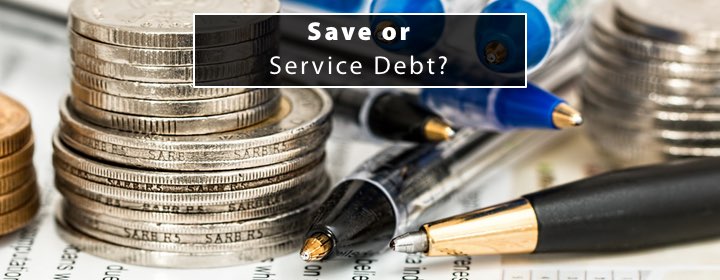Saving is important, but if you have a credit card debt or an overdraft to pay off does it still make sense to save?
It is always a good idea to be saving IF you are in a position to put some money away. Due to the accessibility and convenience, credit card and overdraft facilities, in general, have higher interest and monthly account charges. So how do you know if you are in the position to put money away?
There are many ways to incorporate saving into a manageable and sustainable practice; here is one approach that splits it up into three different saving streams:
The first stream includes a literal piggy bank, which you fill up with loose change that can be used for bread, milk, eggs, etc. Saving up loose change can yield a surprising sum of cash if practiced persistently.
The second stream you need is a short term savings account (or “emergency fund”) which can be used for a new pair of tyres on your car or a medical aid shortfall or a similar unforeseen expense. With this too, there are many different thoughts. Some people say it should be around one-month’s salary whilst others say three, and some even say six months. A rough guide is to anticipate some potential expensive scenarios, think about how much you would be out of pocket, and use that for your guide. This is one of the many areas of your portfolio where I could add wisdom and insight for you.
Last is the stream for a longer term savings plan. For example, a 30- or 60-day account which allows you to save, but the accessibility requires you to stop and think before you spend. (These longer term savings accounts typically earn a bit more interest than others.)
Now, back to the overdraft. It is usually better to pay this off first with a little more than the required amount, which services the debt. Next you should pay your savings accounts. As Warren Buffet says, “Don’t save what is left after spending, but spend what is left after saving.”
If you have accumulated a fair amount of debt on a credit card then you should go to the bank and ask that they adjust the overdraft to enable you to pay it off without access to the facility. Then give the credit card to someone you trust to keep while you pay off the card.
When paying into your savings every month it is amazingly rewarding once you start to see growth. These future savings also allow you to negotiate better deals when paying with cash instead of buying on credit. There is also a tax benefit when you save, although it is limited.
Need to know more about saving or servicing debt? Give me a call and let’s meet up!
Source: fin24

